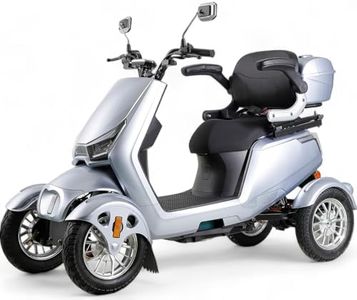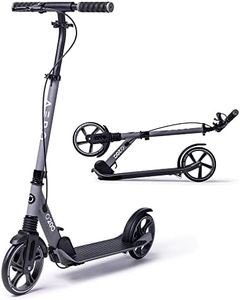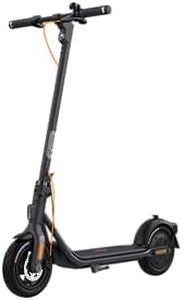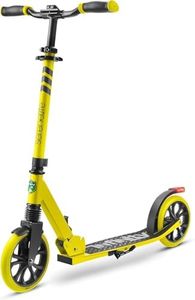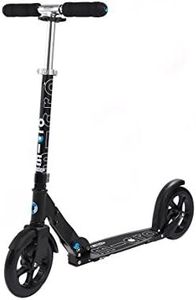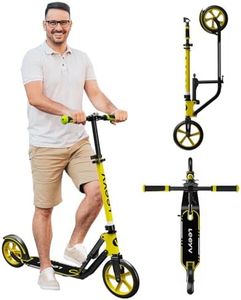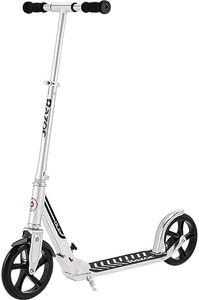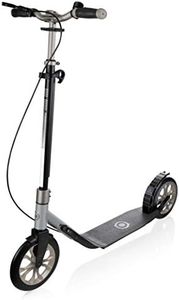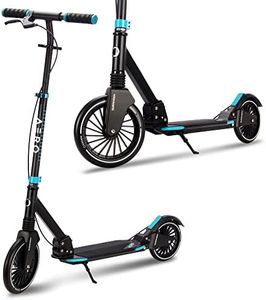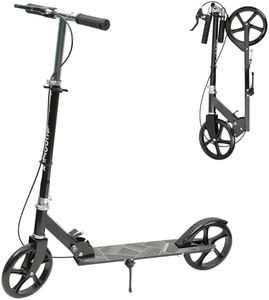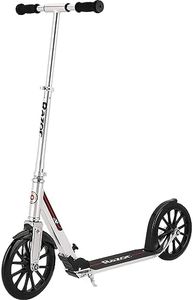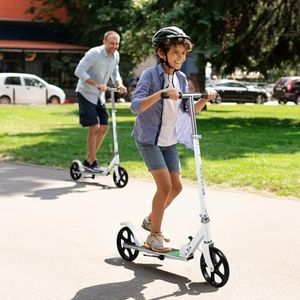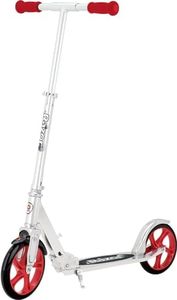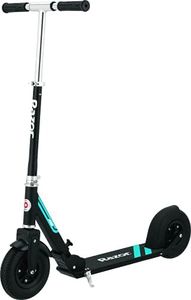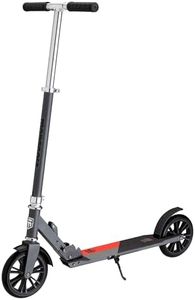We Use CookiesWe use cookies to enhance the security, performance,
functionality and for analytical and promotional activities. By continuing to browse this site you
are agreeing to our privacy policy
10 Best Scooters For Adults
From leading brands and best sellers available on the web.By clicking on a link to a third party's website, log data is shared with that third party.
Buying Guide for the Best Scooters For Adults
When choosing a scooter for adults, it's important to consider how and where you plan to use it. Are you looking for something for commuting, leisurely rides around the neighborhood, or perhaps a scooter that can handle rougher terrain? Thinking about these questions will help you prioritize which features are most important for your needs, whether that's comfort, portability, speed, or durability. Taking time to understand the different key specifications will ensure you find a scooter that matches your daily routine and preferences.Wheel SizeWheel size refers to the diameter of the scooter wheels, which affects ride comfort and handling. Smaller wheels, usually between 5 to 7 inches, are lighter and make the scooter easier to carry, but they can feel bumps in the road more. Medium wheels, around 8 to 10 inches, find a balance between smoothness and portability. Larger wheels (over 10 inches) offer a softer ride, roll smoother over uneven ground, and are better for longer distances or rough surfaces. Choose smaller wheels if you'll use your scooter mainly on flat, smooth paths and need to carry it a lot. Larger wheels are better if ride comfort and stability are your top priorities or if you’ll be travelling on rougher surfaces.
Deck Size and Ground ClearanceThe deck is where you stand while riding, and its size affects comfort and ease of use. A longer or wider deck provides more space for your feet, which can be more comfortable for longer rides or bigger adults, but might make the scooter heavier and bulkier. A higher ground clearance lets you go over bumps more easily but makes it harder to push and can feel less stable, especially for shorter or lighter riders. If you prioritize comfort and stability, look for a wider and longer deck with moderate ground clearance; if portability or easy pushing is your goal, a slimmer deck with lower ground clearance might be better.
Weight CapacityWeight capacity indicates the maximum load the scooter can safely handle. Most adult scooters are rated between 200 and 300 lbs. It’s important for safety and durability that you choose a scooter with a weight limit higher than your own weight, especially if you’ll be carrying a backpack or bag. If you’re close to the upper limit, go for a model with a higher weight rating for long-term reliability.
Foldability and PortabilityMany adult scooters can fold for easier carrying and storage. Foldability is a key feature if you plan to carry your scooter onto public transport, store it under a desk, or fit it into a small space at home. Some scooters fold into a very compact size, while others might be bulkier due to larger wheels or frames. Consider how often you’ll need to carry your scooter and choose one that folds easily and is light enough for you to handle comfortably.
Brake TypeScooters commonly have either foot brakes (on the rear wheel), hand brakes (on the handlebars), or both. Foot brakes are simple and reliable but take some getting used to, while hand brakes can offer more control at higher speeds. If you’ll be riding downhill or at faster speeds, a model with a hand brake or a combination of both might suit you best. For flatter, slower commutes, a foot brake is often enough.
Adjustable Handlebar HeightAdjustable handlebars let you set the handle height to suit your body for better comfort and control. This is especially important if you are taller or shorter than average, or if multiple people will use the scooter. Handlebar ranges usually cover most adult heights, but if you’re very tall, double-check the maximum handlebar height to avoid stooping.
SuspensionSome scooters have built-in suspension systems, usually near the wheels, to absorb shocks from rough surfaces. Suspension adds comfort, especially for longer rides or on uneven roads, but may make the scooter heavier. If you’ll mostly ride on smooth paths, suspension isn’t necessary; but if you expect rough sidewalks or potholes, it's a useful feature to look for.
Frame MaterialScooters are typically made from aluminum or steel. Aluminum frames are lighter and rust-resistant, making them easier to carry and good for wetter climates, while steel frames are usually stronger but heavier. If you want a light, portable scooter, lean toward aluminum; if durability and strength matter more, steel could be the way to go.
